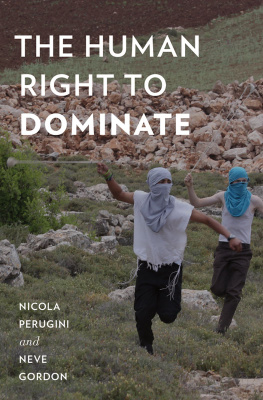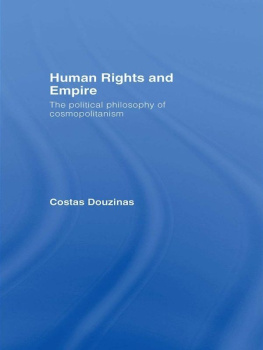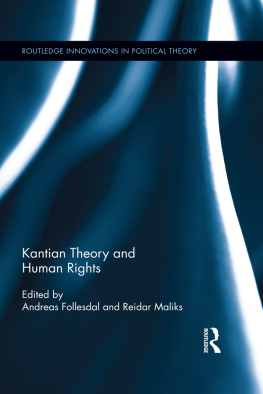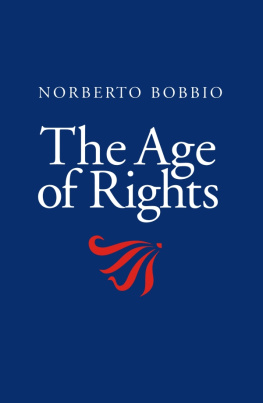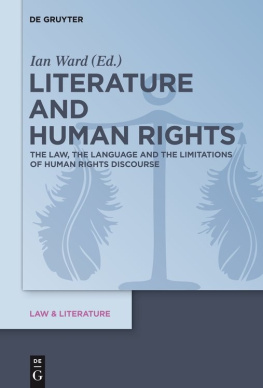
The Human Right to Dominate
Recent Titles in
OXFORD STUDIES IN CULTURE AND POLITICS
Clifford Bob and James M. Jasper, General Editors
Sex, Politics, and Putin
Gender, Activism, and Political Legitimacy in Russia
Valerie Sperling
Women in War
The Micro-processes of Mobilization in El Salvador
Jocelyn Viterna
Ethnic Boundary Making
Institutions, Power, Networks
Andreas Wimmer
Nonviolent Revolutions
Civil Resistance in the Late 20th Century
Sharon Erickson Nepstad
Democracy in the Making
How Activist Groups Form
Kathleen M. Blee
Fire in the Heart: How White Activists
Embrace Racial Justice
Mark R. Warren

Oxford University Press is a department of the University of Oxford. It furthers the Universitys objective of excellence in research, scholarship, and education by publishing worldwide. Oxford is a registered trade mark of Oxford University Press in the UK and in certain other countries
Published in the United States of America by
Oxford University Press
198 Madison Avenue, New York, NY 10016,
United States of America
Oxford University Press 2015
All rights reserved. No part of this publication may be reproduced, stored in a retrieval system, or transmitted, in any form or by any means, without the prior permission in writing of Oxford University Press, or as expressly permitted by law, by license, or under terms agreed with the appropriate reproduction rights organization. Inquiries concerning reproduction outside the scope of the above should be sent to the Rights Department, Oxford University Press, at the address above.
You must not circulate this work in any other form and you must impose this same condition on any acquirer
Cataloging-in-Publication data is on file at the Library of Congress
9780199365036 (ebook.)
9780199365005 (pbk.)
987654321
Printed in the United States of America on acid-free paper
To Farah, Catherine, Ariel, and Aviv
Among the natural rights of the Colonists are these: First, a right to life; Secondly, to liberty; Thirdly, to property; together with the right to support and defend them in the best manner they can.
Samuel Adams, The Rights of the Colonists, The Report of the Committee of Correspondence to the Boston Town Meeting, November 20, 1772
My conflict with the Other revolves around one single question: who between us, today, deserves the status of victim? I often told the Other, joking: lets exchange our roles. You are a victorious victim. I am a dominated victim.
Mahmoud Darwish, interview with the Lebanese poet Abbas Beydoun, Al Wasat (London), 1995
This book is the result of a friendship and a fertile scholarly exchange. Over the last few years, hardly a day has passed in which we have not bounced ideas or thoughts off each other. Each one of us has intervened in practically every paragraph, sentence, and word in this book. Every line has been constantly questioned, revisited, rearticulated, and at times erasedto such an extent that our individual contributions are currently almost unrecognizable. We consequently share equal responsibility for both the contributions and the mistakes the book might contain. The intellectual curiosity and affinity we have developed during the writing of The Human Right to Dominate is already consolidating into a new book project about human shielding, a topic that we begin to develop in . We have therefore, by mutual consent, decided to let Nicola Perugini be the first author of The Human Right to Dominate, while Neve Gordon will be the first author of the second book On Human Shielding, which we expect to publish in the near future.
Our encounter was made possible by generous fellowships awarded to both of us by the Institute for Advanced Study at Princeton. The School of Social Science and the IAS campuss beautiful environment provided us with an incredible space for exchanging ideas. We are particularly grateful to Joan Scott and Didier Fassin for inviting us to the IAS and for encouraging us to complete this project. Danielle Allen, Lucas Bessire, Vincent Dubois, David Eng, Sara Farris, Moon-Kie Jung, Peter Thomas, Jens Meierhenrich, and Laurence Ralph have all read parts of the manuscript during our stay at IAS and offered very helpful suggestions.
Another person who made this book possible is Clifford Bob, a coeditor of Oxfords Culture and Politics series. Cliff pushed us to embark on this project and read drafts of the manuscript at different stages while providing us with meticulous and insightful comments, which then forced us to rethink some of our claims and to reformulate others. Lisa Hajjar, Catherine Rottenberg, and Rebecca Stein have also read the whole manuscript and pushed us to make our arguments clearer and more precise, as did James Cook, the sociology editor at OUP.
Different people read earlier drafts of chapters or commented on them during various presentations. We are grateful to Nasser Abourahme, Ala Alazzeh, Lorenzo Alunni, Merav Amir, Valentina Azarov, Roberto Beneduce, Nitza Berkovitch, Eduardo Cadava, Alice Cherki, Gerard Daniel Cohen, Yinon Cohen, Elliott Colla, Armando Cutolo, Emilio Dabed, Joyce Dalsheim, Dani Filc, Michal Givoni, Saleh Hijazi, Sandi Hilal, Thomas Keenan, Nadim Khoury, Hagar Kotef, Omar Jabary Salamanca, Stefano Jacoviello, Luciano Li Causi, Miriam Lowi, Anne Norton, Zia Mian, Sunaina Maria, Julie Peteet, Alessandro Petti, Kareem Rabie, Amnon Raz-Krakotzkin, Noga Rotem, Tommaso Sbriccoli, Majid Shihade, Pier Giorgio Solinas, Simona Taliani, Oraib Toukan, Lorenzo Veracini, Eyal Weizman, Niza Yanay, Oren Yiftachel, Tirdad Zolghadr, and Francesco Zucconi.
After the year at IAS, the Al Quds Bard College in Palestine gave further support to Nicola during the writing process, allowing him to adapt his courses and workload to his writing needs. The University of Siena provided Nicola with a postdoctoral fellowship that allowed him to write the article The Human Right to the Colony with Kareem Rabie, which inspired of this book. Nicola is also extremely grateful to Brown University, where he completed the book as a Mellon Postdoctoral Fellow at the Cogut Center for the Humanities with a fellowship in Italian and Middle East Studies. Special thanks go to Beshara Doumani, Michael Steinberg, Suzanne Stewart and Massimo Riva for giving him the opportunity to continue his work and research at Brown.
Neve wishes to thank Gal Ariely, Dani Filc, Michal Givoni, Becky Kook, David Newman, Jennifer Oser, Sharon Pardo, Renee Poznanski, Ahmad Saadi, Lynn Schler, and Haim Yacobi, members of the Department of Politics and Government at Ben-Gurion University, for their ongoing support over the years.
The Human Right to Dominate
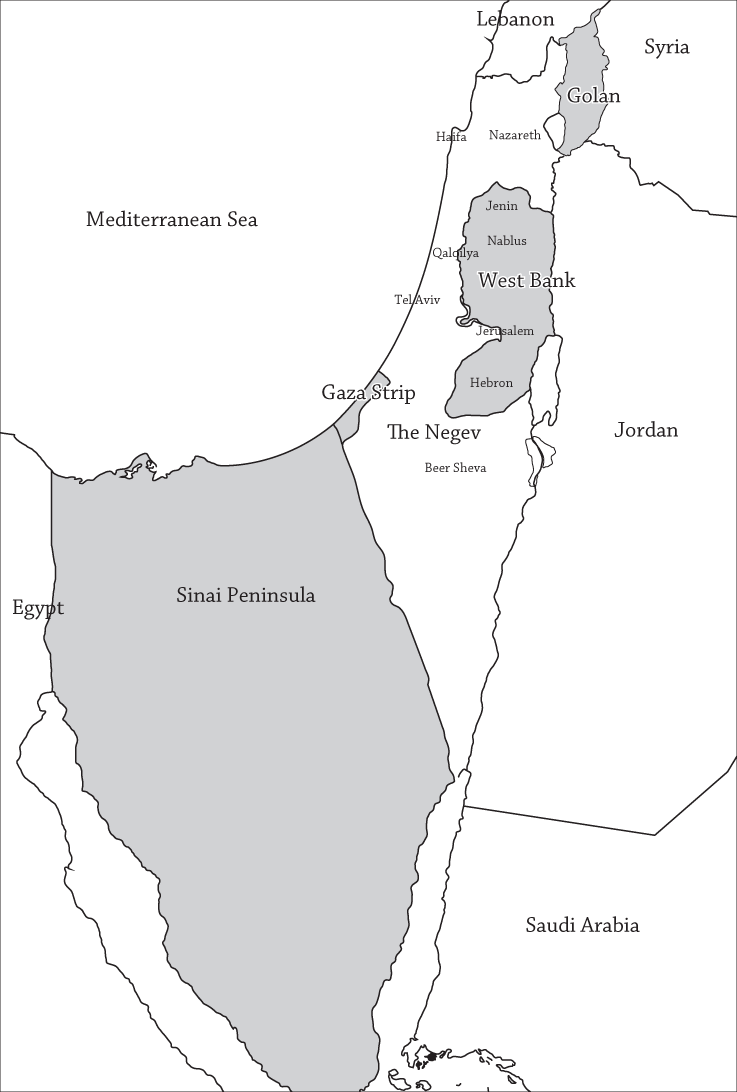
Figure 1.
Map of Israel/Palestine.
Source: Neve Gordon, Israels Occupation.
The Grand Duchess: And to whom better to speak of crime than a murderer?
Kaliayev: What crime? All I remember is an act of justice.
Albert Camus
On a cool spring day in May 2012, the members of the North Atlantic Treaty Organization (NATO) met in McCormick Place, Chicago. The 28 heads of state comprising the military alliance had come to the Windy City to discuss the impact of the Arab Spring on security, a missile shield system for Europe, and the withdrawal of NATO forces from Afghanistan. Nearly a decade before, in August 2003, NATO had assumed control of the International Security Assistance Force, a coalition of 46 countries that had sent soldiers to occupy the most troubled regions in Afghanistan (i.e., south and east). Not long before the Chicago summit, President Barack Obama had publically declared that the United States would begin pulling out its troops from Afghanistan and that a complete withdrawal would be achieved by 2014. NATO was therefore set to decide on the details of a potential exit strategy.

